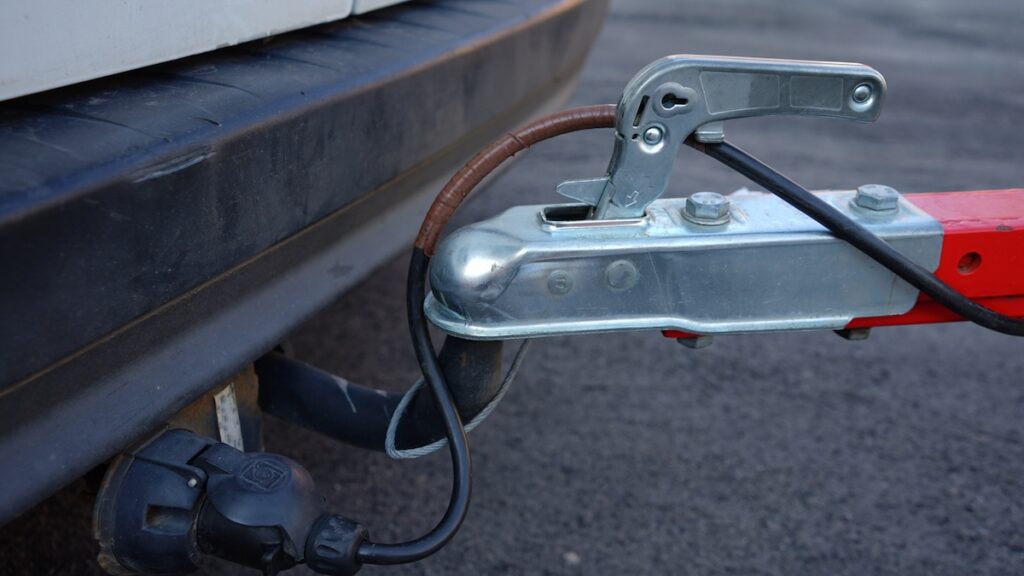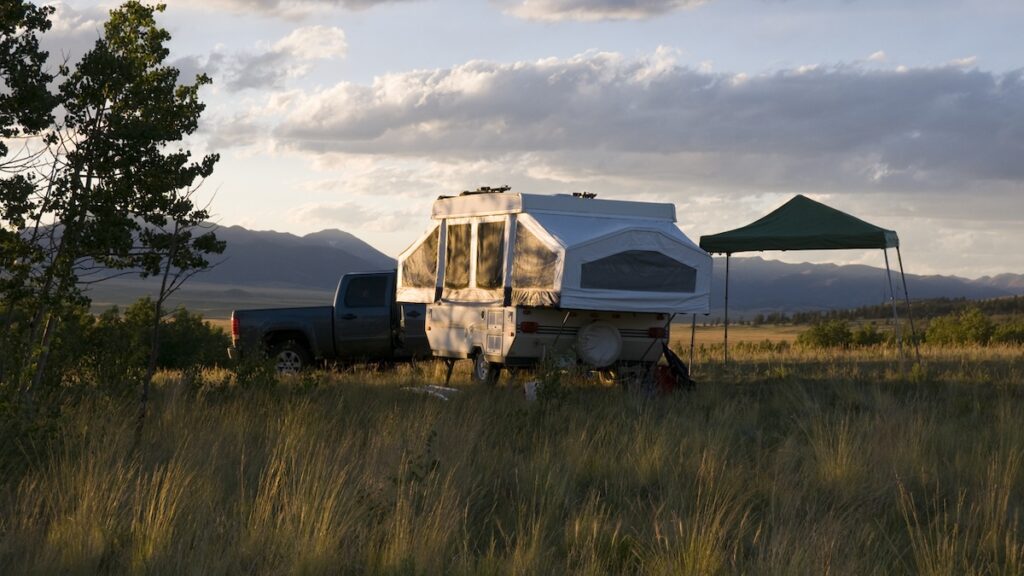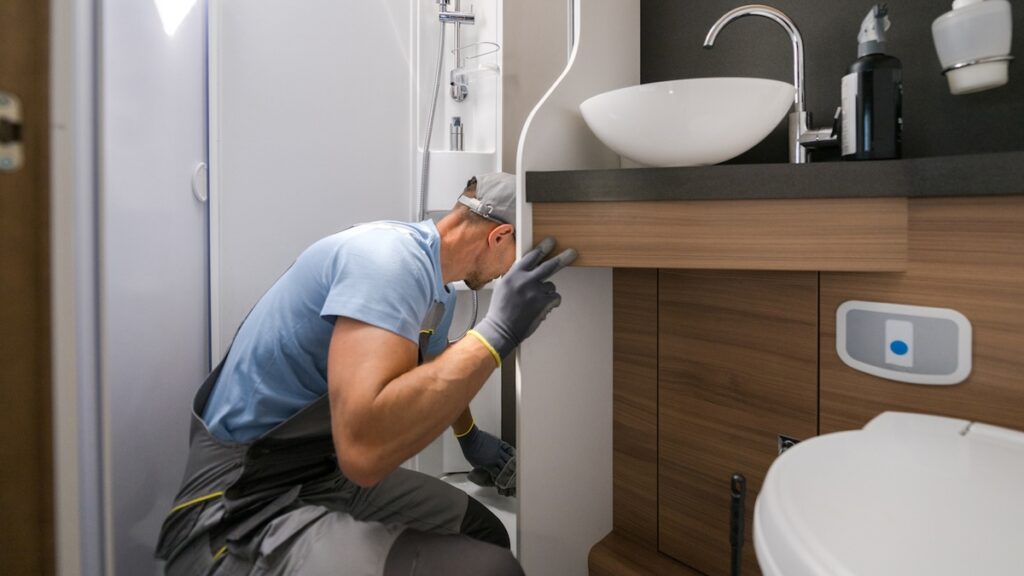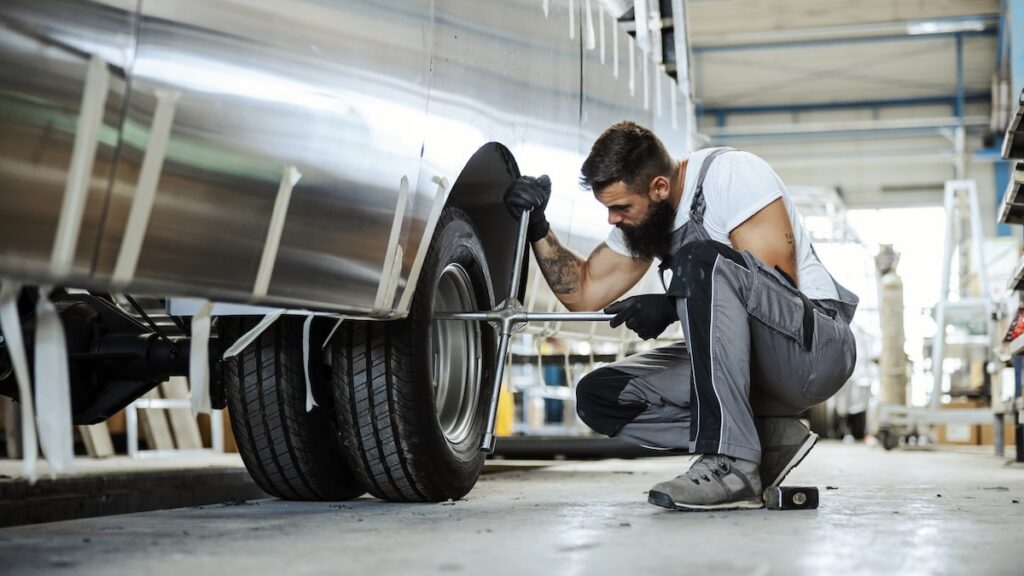Proper trailer hitch maintenance and repair are essential for ensuring the safety, reliability, and longevity of your towing equipment. Over time, trailer hitches can face a range of challenges, including rust, loose connections, wear from heavy loads, and damage to electrical components like wiring harnesses. Neglecting these issues can lead to compromised towing performance, accidents, or costly replacements. This guide will walk you through common trailer hitch problems, from identifying signs of damage to performing basic maintenance and repairs, so you can keep your hitch in top condition and your towing experience stress-free.
1. Hitch Misalignment
Potential Causes:
• Uneven terrain during hitching.
• Improper backing up techniques.
Troubleshooting Steps:
1. Level the RV and Tow Vehicle: Ensure both are on level ground before attempting to hitch up, as uneven terrain can cause misalignment.
2. Use a Hitch Guide: Alignment tools can help position the hitch receiver and trailer coupler correctly.
3. Back Up Slowly: Proceed slowly and steadily, using a spotter if possible, to make small adjustments as needed.
Instructional Video: How to Hitch a Travel Trailer
2. Trailer Sway (Fishtailing)
Potential Causes:
• Improper weight distribution.
• High winds or inadequate hitch setup.
Troubleshooting Steps:
1. Ensure Proper Weight Distribution: Distribute the weight of your RV evenly to prevent sway.
2. Use Sway Control Devices: Consider installing sway control hitches or weight distribution systems.
3. Drive Cautiously: Reduce speed during high winds and avoid sudden maneuvers.
Instructional Video: How to Prevent Trailer Sway
3. Hitch Installation Issues
Potential Causes:
• Loose bolts or misaligned components.
• Incorrect installation of the hitch receiver.
Troubleshooting Steps:
1. Inspect Installation: Check for loose bolts and ensure components are properly aligned.
2. Follow Manufacturer Guidelines: Refer to the hitch manufacturer’s installation instructions for correct setup.
3. Seek Professional Assistance: If unsure, consult a professional to verify the installation.
Instructional Video: Trailer Hitch Installation Tips
4. Excessive Noise from Hitch
Potential Causes:
• Lack of lubrication.
• Worn-out components.
Troubleshooting Steps:
1. Lubricate Moving Parts: Apply appropriate grease to the hitch components to reduce noise.
2. Inspect for Wear and Tear: Examine parts for signs of wear and replace if necessary.
3. Use Noise-Reduction Accessories: Consider using hitch silencers or pads designed to minimize noise.
Instructional Video: Reducing Hitch Noise
5. Hitch Component Failure
Potential Causes:
• Overloading the hitch beyond its capacity.
• Corrosion or lack of maintenance.
Troubleshooting Steps:
1. Verify Hitch Capacity: Ensure the hitch is rated for the weight of your RV and cargo.
2. Perform Regular Maintenance: Clean and inspect the hitch regularly to prevent rust and corrosion.
3. Replace Damaged Parts: Immediately replace any components showing signs of damage or excessive wear.
Instructional Video: Hitch Maintenance and Inspection
Comprehensive Resource:
For more detailed troubleshooting, check out this guide: Patriot Hitches Complete Troubleshooting Guide
Additional Video:
5th Wheel Hitch Maintenance: Keep Your RV Attached to Your Truck





